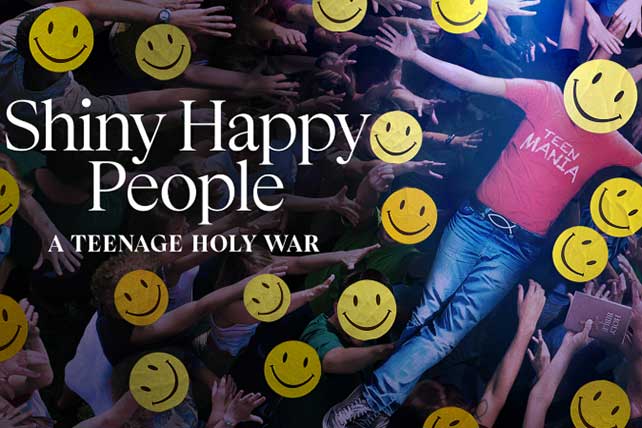In 2005, Teen Mania doubled down, launching the Battle Cry Campaign. Backed by conservative Christian icons such as Chuck Colson, Pat Robertson and Joyce Meyer, it put Luce on a national tour where he deployed war metaphors to urge Christian kids to stand against pornography, gay marriage and materialism.
“It was always, we have a fight. There’s a fight for your young people’s souls, and we’re casting out the devil,” Saum said.
About that time Teen Mania joined the Arlington Group, a coalition of Christian right conservative groups that included the American Family Association, Center for Moral Clarity, Family Research Council and Focus on the Family. By 2014, it had been endorsed by evangelist Billy Graham, former President George W. Bush and Bishop T.D. Jakes, among other influential leaders.
But a year later, Teen Mania Ministries abruptly announced it would shut down. An RNS report from the time cites financial trouble, but also the stories of mistreatment and spiritual abuse being told by watchdog groups and on alumni blogs. As the criticism became public, the Honor Academy struggled to recruit interns. Soon, Teen Mania’s headquarters in Garden Valley, Texas, was in foreclosure.
April Ajoy in “Shiny Happy People: A Teenage Holy War.” (Courtesy of Prime Video)
But the end of Teen Mania didn’t mean the end of its influence, according to the documentary. “The army Ron trained is still out there,” Mica Ringo, creator of the “Recovering Alumni” blog for former Teen Mania interns, tells the filmmakers. Ajoy told RNS that she hears echoes of Teen Mania in the rhetoric of today’s Christian nationalists, who, she said, try to convince Americans, “If you can keep people from sinning through policy and laws, then they have a better chance of going to heaven.”
RELATED: ‘Shiny Happy People’ Is Amazon’s Most Successful Docuseries Debut Ever
Ajoy said the importance of “Shiny Happy People: A Teenage Holy War” highlights how extreme, warlike, pro-Christian rhetoric has entered mainstream American discourse, particularly in the evangelical world.
“Most people who espouse Christian nationalism in some way don’t think that they are Christian nationalists,” Ajoy told RNS. “They think they’re just being good Christians. They love God. They love people. They vote Republican, because that’s part of it too. But they genuinely believe … that turning America Christian is a call from God.”
This article originally appeared here.


